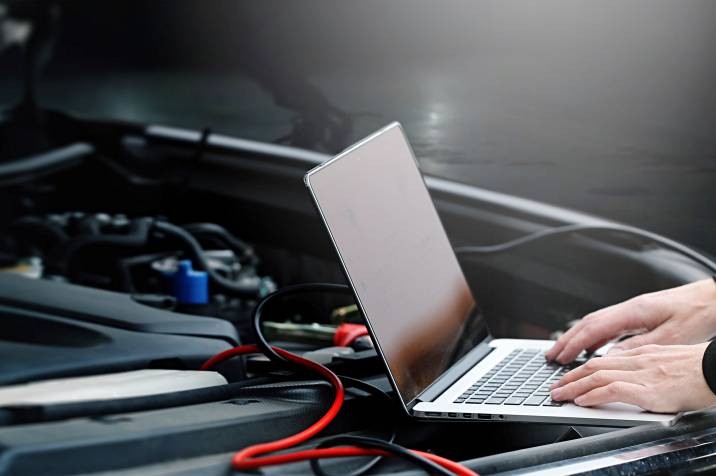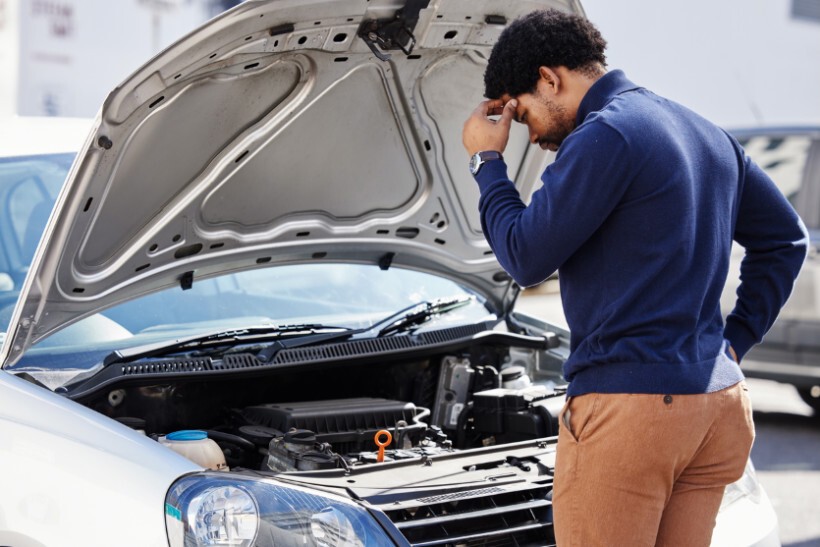Knowing what’s wrong with your car is the first step to getting it fixed, and that’s where car diagnostic tests come in. If your check engine light is on or you’re experiencing unusual vehicle behavior, a diagnostic service can pinpoint the issue. But before you book an appointment, a crucial question arises: how much do car diagnostic cost?
The price of a car diagnostic test can vary significantly, typically ranging from $20 to over $400. This range depends on several factors, including the service provider, the type of vehicle you own, and where you are located. Understanding these cost variables can help you make informed decisions and potentially save money on car repairs.
Understanding Car Diagnostic Tests
Modern vehicles are equipped with sophisticated onboard computer systems and numerous sensors that monitor various aspects of the car’s performance. When these sensors detect a problem, it often triggers the check engine light. A car diagnostic test involves connecting specialized equipment to your vehicle’s computer to read these error codes and analyze the data. This process helps mechanics identify potential issues within systems like the engine, transmission, braking system, and more.
What’s Included in a Full Car Diagnostic Test?
A comprehensive car diagnostic test goes beyond just reading error codes. A thorough service should provide insights into the following vehicle systems:
- Engine Performance: Checks for issues like misfires, fuel delivery problems, and sensor malfunctions.
- Electrical System: Examines the battery, alternator, wiring, and electronic control units for faults.
- Emissions System: Assesses components like the catalytic converter and oxygen sensors to ensure compliance and identify pollution issues.
- Transmission: Analyzes the transmission’s performance and detects potential mechanical or electronic problems.
- Braking System (ABS): Evaluates the anti-lock braking system and related sensors for proper function.
- Exhaust System: Checks for leaks and blockages that could affect performance and emissions.
- Fuel Injection System: Inspects fuel injectors and fuel pressure to ensure efficient fuel delivery.
- Throttle and Ignition Systems: Examines components responsible for engine speed control and spark delivery.
- Air Conditioning: Assesses the AC system’s pressure, leaks, and compressor operation.
- Airbags and Safety Systems: Verifies the functionality of airbags, seatbelt pretensioners, and related safety features.
While a diagnostic test can pinpoint the area of the problem, it’s important to remember that it’s often the first step. Further manual inspection and sometimes additional testing are needed to determine the exact cause and the necessary repairs.
Car Diagnostic Costs: Price Breakdown
The cost of a car diagnostic test can be categorized into these general ranges:
| Car Diagnostic Test Category | Typical Cost Range | Description |
|---|---|---|
| Basic/Low-End | $20 – $65 | Often offered as a loss leader to attract customers, may be less comprehensive. |
| Mid-Range | $65 – $160 | Standard diagnostic service at independent garages and some dealerships. |
| Advanced/High-End | $160 – $400+ | More in-depth diagnostics, specialized equipment, often at dealerships or for luxury/performance vehicles. |


These figures are estimates, and actual prices can vary. Remember to always confirm the diagnostic fee with the service provider before proceeding.
Here’s a look at average labor rates and car repair costs in a few states, which can indirectly influence diagnostic costs as labor is often a component:
| State | Average Labor Rate | Average Car Repair Cost |
|---|---|---|
| Kansas | $146.87 | $227.57 |
| New York | $135.19 | $251.36 |
| Florida | $142.74 | $253.55 |
| Texas | $145.86 | $251.67 |
| Georgia | $145.34 | $262.37 |
| California | $144.56 | $268.48 |
Factors Influencing Car Diagnostic Service Prices
Several key factors contribute to the fluctuation in car diagnostic costs:
Location Matters
Geographical location plays a significant role in pricing. Areas with higher population density and greater competition among auto repair shops may see more competitive and potentially lower diagnostic prices. Conversely, in less populated areas or regions with a higher cost of living, prices might be elevated due to less competition and higher overheads.
Mechanic’s Expertise and Labor Rates
The experience and skill level of the mechanic performing the diagnostic test directly impact labor charges. Highly experienced and certified technicians, particularly those specializing in certain vehicle brands or advanced diagnostics, may command higher labor rates. Shops with state-of-the-art diagnostic equipment may also factor these investments into their service costs. However, investing in expertise can often lead to more accurate diagnoses and quicker resolutions, potentially saving money in the long run by avoiding misdiagnosis and unnecessary repairs.
Vehicle Make and Model
The complexity of your vehicle significantly influences diagnostic costs. Luxury vehicles, high-performance cars, and those with advanced technology often require specialized diagnostic tools and expertise. Diagnosing issues in these vehicles can be more time-consuming and necessitate specific knowledge, leading to higher service charges. Mass-market vehicles, on the other hand, are generally simpler to diagnose, and more mechanics are familiar with their systems, potentially resulting in lower costs. For luxury vehicles, consulting with dealerships or certified specialists might be advisable, even if it comes at a premium.
When is a Car Diagnostic Test Recommended?
Knowing when to get a diagnostic test can save you from potential major repairs down the line. Consider a car diagnostic service in these situations:
- Check Engine Light is Illuminated: This is the most obvious indicator that your car’s computer has detected an issue. A diagnostic test is crucial to decipher the error code and understand the problem.
- Purchasing a Used Vehicle: Before buying a used car, a diagnostic inspection is highly recommended. It can reveal hidden problems not apparent during a visual inspection and prevent costly surprises after purchase.
- Preventive Maintenance: Incorporating regular diagnostic checks into your maintenance schedule can proactively identify minor issues before they escalate into major repairs. This is especially beneficial for older vehicles or those with high mileage.
- Experiencing Performance Issues: Even without the check engine light on, if you notice unusual symptoms like decreased fuel efficiency, strange noises, rough idling, or changes in handling, a diagnostic test can help uncover underlying problems.
Getting the Best Value for Your Car Diagnostic Service
To ensure you receive the best value when seeking a car diagnostic service:
- Compare Quotes: Call multiple garages and dealerships to compare their diagnostic service costs. Ask for a clear breakdown of what’s included in the price.
- Read Reviews: Check online reviews and ratings for local mechanics and auto repair shops to gauge their reputation and service quality.
- Ask About Labor Rates: Understand the shop’s labor rates and how they apply to diagnostic services and potential follow-up repairs.
- Clarify Diagnostic Fee Application: Inquire if the diagnostic fee is waived or applied towards repair costs if you choose to have the repairs done at the same shop.
- Don’t Delay: Addressing potential car problems early through diagnostics can prevent more extensive and expensive damage in the future.
In conclusion, the cost of a car diagnostic test is a worthwhile investment when you need to understand your vehicle’s issues accurately. By understanding the factors that influence pricing and knowing when to seek this service, you can make informed decisions to maintain your car effectively and avoid unexpected repair bills.
